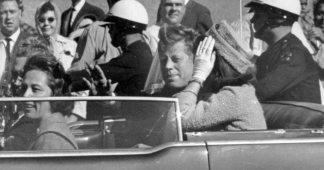21.12.2019
The tribunal, which hears complaints about intelligence agencies, ruled that UK intelligence officers may grant their agents and informants the right to commit crimes, if it serves the national interest. The decision was passed with a small majority, underscoring the sensitivity of the issue.
A secret MI5 policy, which allows intelligence agents and informants to commit serious crimes, was ruled lawful by the UK’s Investigatory Powers Tribunal (IPT) in a 3-2 ruling, The Guardian reported Friday.
According to the tribunal, a UK intelligence bureau has “an implied power” to allow crimes under the Security Service Act. The 56-page ruling says the policy does not breach human rights and it does not grant absolute immunity to those who commit crimes – including murder or torture.
“The [European] convention [of human] rights issues do not arise as a matter of substance in this challenge to the policy of the security service […] The events of recent years, for example in Manchester and London in 2017, serve vividly to underline the need for such intelligence-gathering and other activities in order to protect the public from serious terrorist threats,” the majority decision noted, according to The Guardian.The ruling comes a year after the UK government confirmed the existence of a previously secret policy, known as the “Third Direction,” BBC reported.
The document that enables the policy was signed by former Prime Minister David Cameron and says intelligence officers can allow agents and informants in the field to commit crimes in the national interest, without the need to tell police and prosecutors.
It is undisclosed what limits there may be, if any, on such criminal activity. Due to the sensitive nature of the case, part of the hearing was held behind closed doors and the tribunal has published two versions of the ruling – a public and a “closed” one.
“For the reasons which are set out in our closed judgment, there is no more of the text of the guidelines which can properly be put into the public domain,” the tribunal said.The tribunal ruling was published complete with dissenting opinions, making it the first such case in the court’s history.
The highly controversial ruling underscores the fundamental tension between two vital interests: preventing crime and protecting national security, BBC writes.
Speaking during the hearing, government lawyers insisted that intelligence services must send agents deep into terror networks, and those agents must appear credible. Many spy movies and video games involve a plot where a double agent is forced to commit murder as a test.
The lawsuit was filed by a group of civil liberty groups, including Reprieve, the Pat Finucane Centre, Privacy International and the Committee for the Administration of Justice.
“We think the bare majority of the IPT got it seriously wrong. We will seek permission to appeal to protect the public from this abusive secretive power,” Privacy International said.











